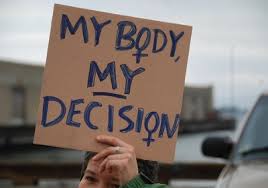FIGHTING BACK BY PUSHING FORWARD !!
May 28, 2019
Story

Few years back, we witnessed the death of a 31 year old Indian woman, Savita Hallapanavar, in Ireland, after doctors refused to give her an abortion 17 weeks into pregnancy, which created quite a huge furor in the Indian and Irish media. The reason for such a hue and cry was the reason that the doctors cited for their inability to perform an abortion – that Ireland, being a Catholic country, they are obligated not to take the life of a fetus. It is the growing perception that Ireland is being governed by a legal regime that encourages doctors to consider the repercussions of taking the life of a fetus even if it at the cost of the life of the mother, thereby keeping in tune with the ideals of the largely Catholic constitution of the country. It is pervaded by a religious dogma that is disrespectful to non believers and demonstrates utter disregard for the life of a mother as opposed to the ‘life’ of a yet-to-be-born baby.
The debate in this issue basically boils down to pro-choice and pro-life support. The pro-choice and pro-life antagonists argue over whether a woman should have the right to abort a pregnancy when she decides that she is either unable or unwilling to invest a lifetime of resources in the fetus that she is carrying. The pro-life proponents claim that such an act is equivalent to murder because the fetus must be considered a viable human being from the time of conception. The pro-choice proponents, on the other hand, advocate a woman’s rights to control her own body, her right to an induced abortion, especially when her own life is in danger. They argue that when the fetus is detrimental to the survival of the pregnant woman, she should be allowed to choose whether she wants to save her own life herself by exercising her natural rights over her own life and body or she wants to try saving her baby.
In this perspective, it is interesting to examine the position and awareness of the issue of abortion laws in India. In other societies, activists talk about the abortion as something that also involves the ending of a potential human life. However, here, we do not discuss the issue of women’s reproductive rights and abortion on terms of pro-life and pro-choice. In our society, abortion is more of a visceral and possibly sentimental issue, and the causes leading to abortion are looked down upon as things that are extremely shameful for a woman, by the so-called moral guardians of the society. Here, the topic of a case of abortion and the factors leading to it are discussed in a hushed whisper, a disapproving tone and cluck of the tongue.
India Insight
Woman’s death poses tough abortion questions for India and Ireland
By Diksha Madhok
November 17, 2012
(Any opinions expressed here are those of the author, and not necessarily those of Thomson Reuters)
The death of a 31-year-old Indian woman in Ireland after doctors refused to give her an abortion has sparked protests in her home country of India as well as in Ireland.
Activists in Ireland said that ending Savita Halappanavar’s pregnancy could have saved her life. She died of septicemia following a miscarriage 17 weeks into her pregnancy. Her family believes that the delay in removing the fetus contributed to the blood poisoning.
Ireland, whose population is 84 percent Roman Catholic, has some of the world’s most restrictive laws on abortion, and critics say that doctors placed faith, as embodied in those laws, above her well being when they decided not to abort Halappanavar’s fetus — despite her repeated requests.
“She was very upset, but she accepted she was losing the baby,” her husband told reporters. “The consultant said it was the law, that this is a Catholic country. Savita said: ‘I am neither Irish nor Catholic’, but they said there was nothing they could do.”
The death of Halappanavar, who was a dentist living and working in Gal way in Ireland after she moved from Karnataka, shows that lack of clear abortion laws can put a woman at the mercy of the morals of medical practitioners, who themselves end up deciding whether it is preferable for an unborn child to lose its life, or for the mother to also do so.
Many people around the world welcome abortion laws that give women the right to the procedure, and people in India have protested just this lack of choice that they see in Ireland.
But the right to choose in India, granted by the Medical Termination of Pregnancy Act of 1971, can be put to sinister use. In the world’s second-most populous country, some people have aborted children on learning that they would be girls.
With the introduction of per-natal sex detection, parents in large parts of the country have opted for sex-selective abortions because they consider girls a liability. Even modern, educated couples prefer boys, whom they see as a source of financial security once the parents age.
In wealthy states such as Punjab, there are only 851 girls for every 1,000 boys in the zero to six age group in urban areas.
Widespread sex-selective abortion has resulted in “wife-sharing,” in which decades of aborting female fetuses has led to such a drastic decline in female population that one woman is sexually “shared” by all the men in a family. Even though such exploitation of women is illegal in India, it has become acceptable in many parts of Haryana and Punjab.
Several Indian politicians as well as India’s ambassador to Ireland have expressed outrage over the death of Halappanavar, both because she was an Indian and that she was made a victim of controversial laws and religious beliefs.
Brinda Karat, leader of the Communist Party of India (Marxist), has called it a “culpable crime” and other local politicians have demanded a swift and transparent probe into the case.
While protests both in India and abroad have forced the Irish government to reconsider its policy on abortion, it has become clear that neither the right to an abortion or a law making it hard or forbidding it will give women in many countries control over their bodies and their lives.




